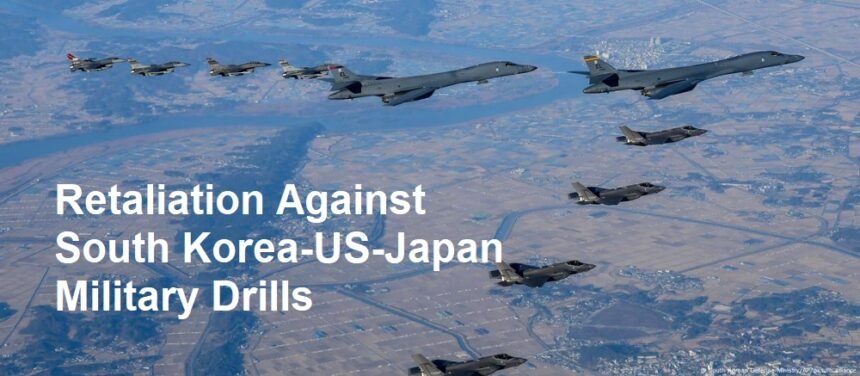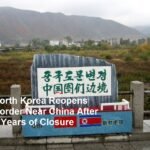North Korea has once again raised tensions in the Korean Peninsula, warning of potential military actions in response to joint military drills being conducted by South Korea, the United States, and Japan. These exercises, which are designed to enhance trilateral cooperation and readiness, have sparked outrage in Pyongyang, which views them as a provocative act and a direct threat to its security. The latest threat comes amid a growing sense of military escalation in the region, with North Korea vowing to take “unprecedented” measures in retaliation.
The joint military exercises between South Korea, the U.S., and Japan, which began in early January 2025, are part of ongoing efforts to strengthen trilateral defense cooperation against potential regional threats, including North Korea’s nuclear and missile programs. These drills include a wide range of activities, from simulated combat training to joint air and naval operations. The exercises are seen as a response to the growing security challenges posed by North Korea’s continued missile tests and its aggressive military posture.
While the drills are primarily defensive in nature, they have long been a source of tension between North Korea and the U.S.-led alliance. Pyongyang argues that such military maneuvers are provocative and undermine efforts for peace and stability in the region. North Korea has frequently accused Washington, Seoul, and Tokyo of preparing for an invasion, despite repeated reassurances from the three countries that the drills are intended solely for defensive purposes.
In response to the ongoing drills, North Korean state media has issued a stern warning, claiming that the exercises are “a direct provocation” and a clear violation of the fragile peace on the Korean Peninsula. The North Korean government has vowed to take “unprecedented measures” if the drills continue, although it has not elaborated on the specifics of these measures.
North Korean officials have stated that the joint exercises represent an “increasingly dangerous” threat to the country’s sovereignty and security. In particular, they have condemned the participation of Japan in the drills, highlighting the historical animosities between the two countries, including unresolved issues related to Japan’s occupation of Korea during the early 20th century.
The threat of military retaliation is not new, as North Korea has a history of reacting strongly to military drills conducted by South Korea and the United States. In the past, these threats have often included the possibility of missile launches, military confrontations along the border, or other provocative actions meant to demonstrate North Korea’s readiness to defend itself.
While North Korea’s official statements have not clarified exactly what actions it might take, analysts are closely watching for signs of possible provocations. In the past, North Korea has responded to similar drills with missile tests, including short-range ballistic missile launches and live-fire exercises near the demilitarized zone (DMZ). It is also possible that the North could conduct another nuclear weapons test, a move that would escalate tensions even further.
Some experts believe that North Korea may use this opportunity to test a new type of missile or military technology, especially given the country’s recent advancements in both nuclear and missile capabilities. Additionally, there is concern that North Korea could engage in cyberattacks or other forms of hybrid warfare, aimed at destabilizing the region without directly confronting the U.S. or South Korea militarily.
Another potential response could be a renewed commitment to strengthen ties with Russia and China, as North Korea has historically turned to these countries for support in the face of pressure from the West. Any such actions could have significant geopolitical ramifications, as they would likely draw in additional global powers into the already tense security environment on the Korean Peninsula.
The United States, South Korea, and Japan have repeatedly expressed their commitment to defending each other against any threats, including those posed by North Korea. The three countries have emphasized that their military exercises are defensive in nature and are conducted in accordance with international law. However, Pyongyang’s repeated threats and provocations have created a complicated diplomatic situation.
The international community, including the United Nations and other stakeholders in the region, has called for de-escalation and a return to dialogue. There have been some efforts to restart denuclearization talks with North Korea, but these have largely stalled in recent years. The latest military drills are unlikely to ease tensions, and the prospects for renewed talks remain uncertain.
North Korea’s reaction to the joint military drills by South Korea, the United States, and Japan highlights the delicate and volatile security situation in the region. With Pyongyang threatening “unprecedented” retaliation, the risk of further military escalation is high. As the situation unfolds, both regional and global powers will need to tread carefully, balancing their security concerns with efforts to prevent an all-out conflict. The coming weeks will likely reveal whether North Korea follows through on its threats or whether diplomatic efforts can bring the tensions down.













